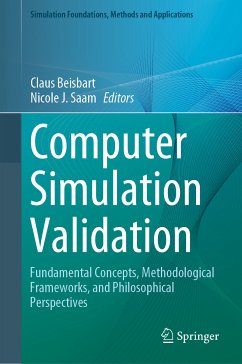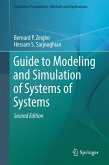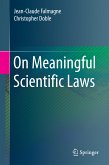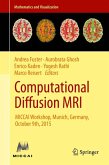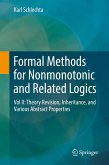Topics and features:
- Introduces the fundamental concepts and principles related to the validation of computer simulations, and examines philosophical frameworks for thinking about validation
- Provides an overview of the various strategies and techniques available for validating simulations, as well as the preparatory steps that have to be taken prior to validation
- Describes commonly used reference points and mathematical frameworks applicable to simulation validation
- Reviews the legal prescriptions, and the administrative and procedural activities related to simulation validation
- Presents examples of best practice that demonstrate how methods of validation are applied in various disciplines and with different types of simulation models
- Covers important practical challenges faced by simulation scientists when applying validation methods and techniques
- Offers a selection of general philosophical reflections that explore the significance of validation from a broader perspective
This truly interdisciplinary handbook will appeal to a broad audience, from professional scientists spanning all natural and social sciences, to young scholars new to research with computer simulations. Philosophers of science, and methodologists seeking to increase their understanding of simulation validation, will also find much to benefit from in the text.
Prof. Dr. Dr. Claus Beisbart is Professor for Philosophyof Science (Extraordinarius) in the Institute for Philosophy at the University of Bern, Switzerland. Prof. Dr. Nicole J. Saam is Professor for Sociology (Chair) in the Institute of Sociology at Friedrich-Alexander University Erlangen-Nürnberg, Germany.
Dieser Download kann aus rechtlichen Gründen nur mit Rechnungsadresse in A, B, BG, CY, CZ, D, DK, EW, E, FIN, F, GR, HR, H, IRL, I, LT, L, LR, M, NL, PL, P, R, S, SLO, SK ausgeliefert werden.
Hinweis: Dieser Artikel kann nur an eine deutsche Lieferadresse ausgeliefert werden.

